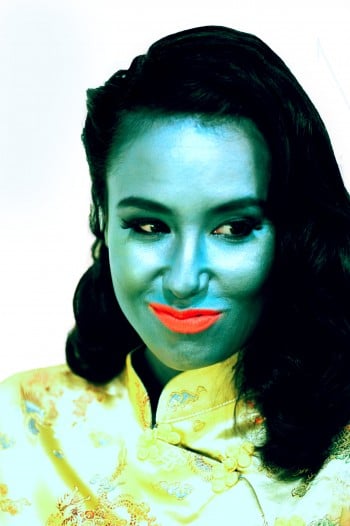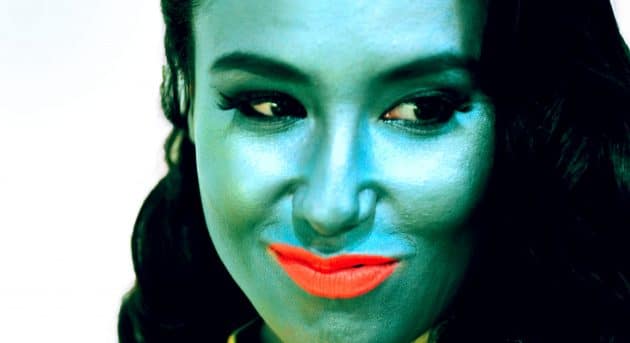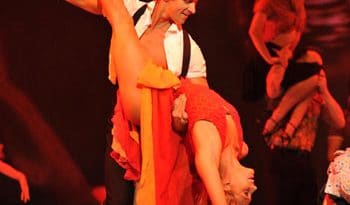Review: Asian Provocateur — Hayes Cabaret Season
Cabaret, as a beating-heart underground art form, has its roots in politics, provocation, and rebellion – intimacy and authenticity without formality. It wasn’t until the end of the 2015 Hayes Cabaret Season that cabaret’s raw spirit took over and transformed the space, and it happened the moment that Josie Lane walked through the audience to take the tiny stage in her new, deeply satisfying show, Asian Provocateur.
In Germany in the 20s and 30s, cabaret was for the dissenters, the artists and the outcasts; it was freedom from the restriction of mass-consumption art and entertainment. Lane’s show is a direct descendent of raucous, subversive Weimar cabaret – it’s an incredibly fun ninety minutes, with fast and dirty language, fast and generous laughs, and an unflinching, undeniable thread of honesty (the kind of honesty that most performers won’t address, even on their own stages).

Lane is half-Filipino and grew up in a suburb of Melbourne where, she says, no one else looked like her; she was too different, and so had a hard time making friends. She learned to sing from an old karaoke VHS tape, letting music fill the space.
Since working in musical theatre, she’s learned that she’s often considered not Asian enough to book jobs in line with her experience – “if Teddy Tahu Rhodes can play the King of Siam in the King and I,” she says, “I should at least be able to get an audition for Here Lies Love.” She didn’t. Nor one for The King and I. And she says this with a laugh, with delivery a stand-up comic would be proud of, but underneath that is a blazing truth: hardly anyone is calling out mainstream musical theatre when it does something prejudiced or just astoundingly ignorant – like casting, in 2014, a white man as a Thai king. She makes it very clear that she’s been typecast and that it’s worked either for or against her: that she can’t get parts she could sing better than a lot of other people, and that the Asian characters she’s played on stage trade on stereotypes, but she makes her point with constant funny patter. She’s speaking truth to power, and she’s doing it hilariously, and this is a winning, and shrewd, tactic.
It’s an infectious stage experience. Lane has the kind of personality that encourages warmth and urges you to be comfortable. The show is a little too loose but will get sharper the next time out, and as it is, it’s hard to mind the occasional aimless feel; Lane is someone you want to hang out with. The stories are bold and she delivers them without delicacy; there’s plenty of bad language and sexual references but they do tend to create something of a genuine truth – it’s humanising.
She’s also singing beautifully, creating a “Something Wonderful” (from The King and I) that feels completely realised even out of context, a full performance in the way that Bernadette Peters is known for summoning time, place, and story in just a couple of minutes. And when she steps behind the screens (set design by James Browne) for a quick costume change, she returns and sits, quietly, and sings “The Movie in my Mind” (Miss Saigon) with a heartbreaking, balanced, pure exploration of the content – resigned and strong, cracked but not broken – it’s extraordinary. Add to that a sultry, complicated, darkly lush “One Night in Bangkok” (Chess) and she creates a fully diverse musical experience.
Lane’s ebullience is matched perfectly by musical director Matthew Frank, who, at the piano, is a compass pointing directly at Lane’s vocal talent, supporting it and bringing her into the spotlight not for amusing, daring anecdotes but for her singing voice, which deserves to be experienced with the same kind of eager attention as her patter.
There’s a superstar inside Lane and a real, exciting gem of a cabaret inside Asian Provocateur. It’s a life story told well, it’s a career highlight showcase with a twist, and it’s a beautifully unified concept of songs – she calls them “songs of an Asian persuasion” – that honours Lane’s heritage while shining a light on how rare opportunities are for Asian actors in musical theatre.
She sings a bite from The Mikado, then makes a joke about how lucky the audience is to finally hear a song from the show sung by an Asian performer.
We need Josie Lane’s show, and musical theatre and cabaret need Josie Lane. When this show comes back (and it will, it must), don’t miss it.




